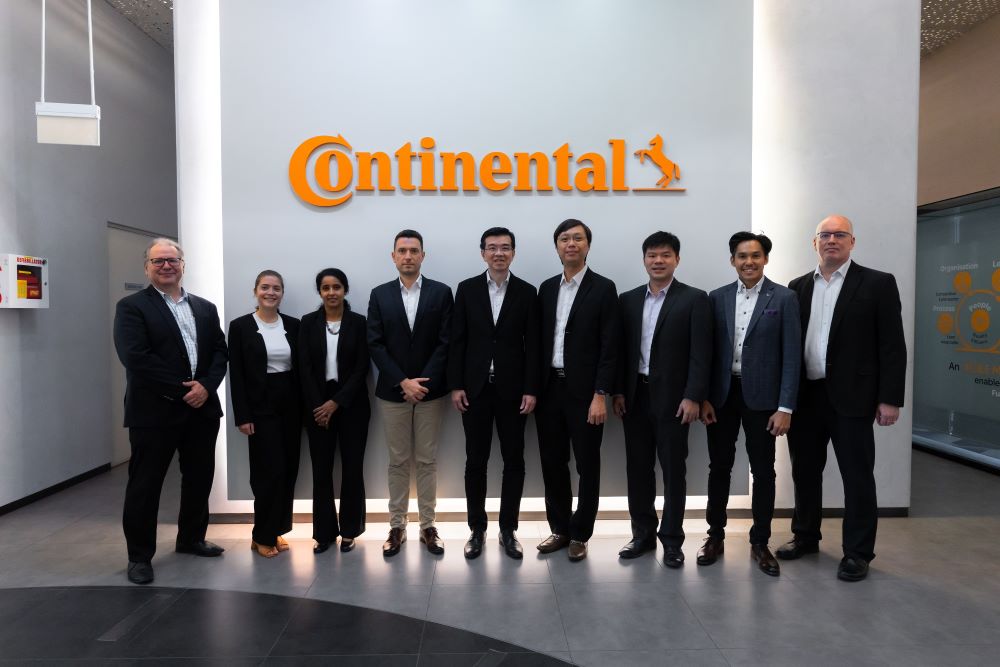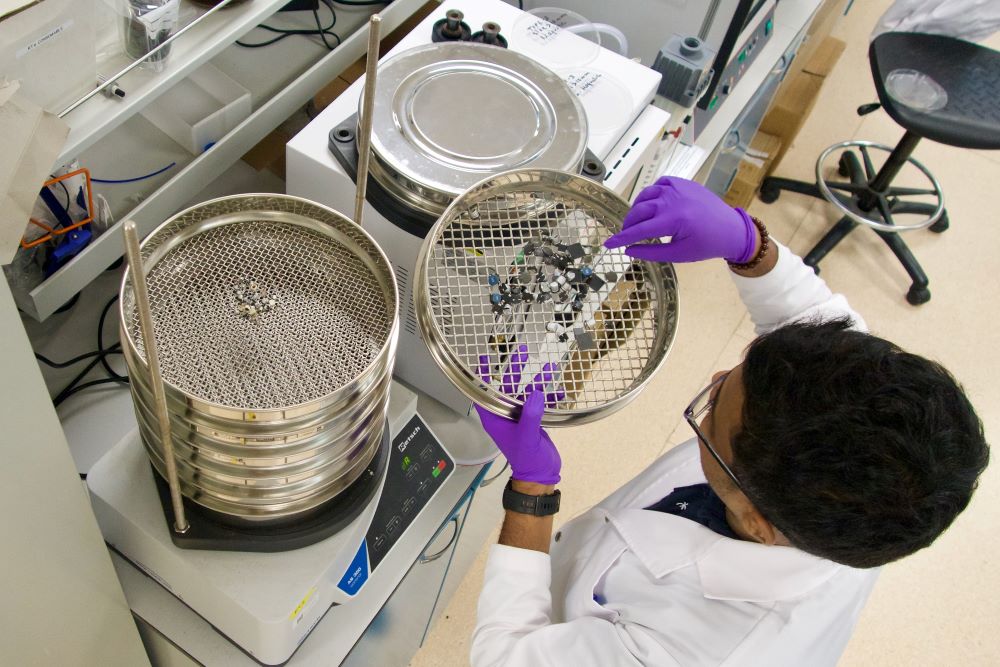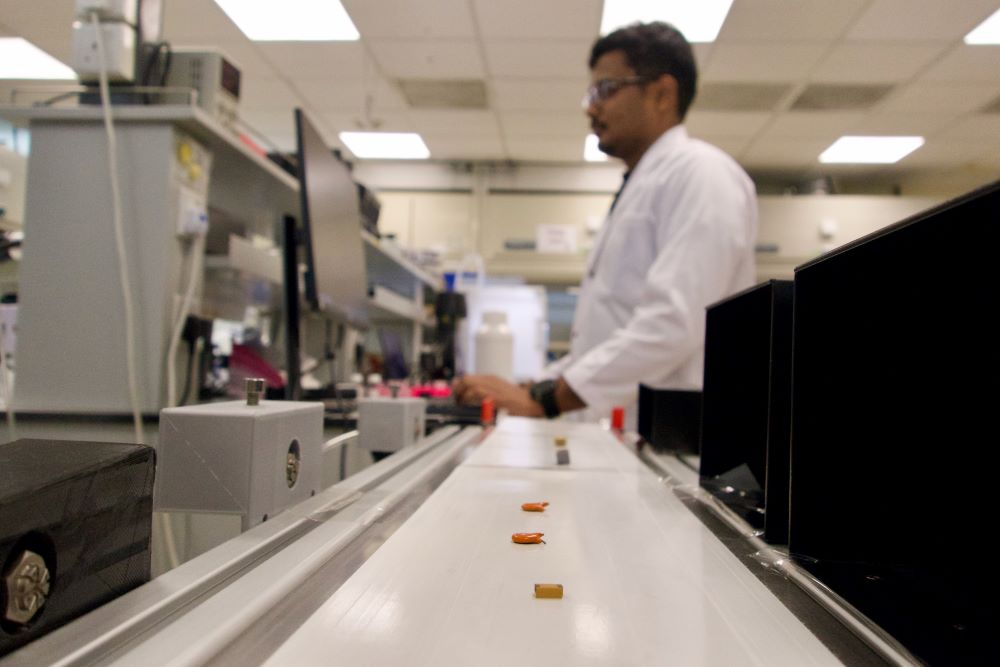Continental has signed three Memorandums of Understanding (MoUs) with local and global partners, to drive research in Singapore on making the mobility ecosystem more environmentally friendly.

The partnership between Continental, Nanyang Technological University, Singapore (NTU Singapore) and Volkswagen Group Innovation seeks to develop smart energy management systems to optimize electric vehicle (EV) charging. The collaboration with CEA and NTU Singapore will research new solutions to recycle electronic components from end-of-life vehicles. The MoU with NTU Singapore and Pylon City covers the study of smart charging systems and battery optimization of EVs. Under this MoU, Continental and Pylon City will also aim to contribute to the development of national standards for outdoor charging infrastructure of autonomous mobile robots (AMRs).

“Continental is pleased to work with esteemed industry players and research institutions to accelerate the future of sustainable mobility. Leveraging each partner’s capabilities and resources, we can pioneer innovative solutions to transform the automotive sector and improve its environmental standards, creating a more sustainable ecosystem for the future,” said Mr. Lo Kien Foh, President and CEO of Continental Automotive Singapore.
“These partnerships are aligned with Continental’s sustainability ambition, covering facets such as carbon neutrality, responsible value chains, and the creation of a circular economy,” added Mr. Lo.

MoU 1: Continental, NTU Singapore and Volkswagen Group Innovation seek to revolutionize EV charging
Volkswagen Group recognises that charging infrastructure and sustainable energy supply are fundamental pillars for advancing the shift toward future battery-electric mobility. Volkswagen Group Innovation is taking steps to accelerate the electric transition by collaborating with Continental-NTU Corporate Lab to explore smart energy management systems.
Through this partnership, the innovation division of the renowned German automaker will assess the potential advantages of dynamic pricing models in mitigating carbon emissions and reducing the stress on existing power systems. This collaborative research initiative seeks to leverage cutting-edge technologies to encourage electric vehicle charging during conventional off-peak hours or when renewable energy supply is abundant.
“Volkswagen Group Innovation remains steadfast in its dedication to advancing the Volkswagen Group’s vision of becoming a leader in sustainable mobility and reaching net-neutrality by 2050. Through our Innovation Hub in Singapore, we actively engage in partnerships with leading innovators to testbed groundbreaking mobility technologies, with a strong emphasis on electric mobility solutions poised for global scalability. Our partnership with Continental and NTU Singapore exemplifies our commitment to cutting-edge innovations, such as dynamic pricing models for electric vehicle charging. In our collaboration, we harness the power of real-time data and artificial intelligence to explore pioneering methods for reducing charging emissions, setting new benchmarks in eco-conscious mobility,” said Mr. Petromil Petkov, Head of Innovation Hub Singapore.
“We are proud to work with Continental and NTU Singapore in their pioneering efforts. Our shared vision for a greener, more electrified tomorrow aligns perfectly with Volkswagen’s global commitment to sustainable transportation. We are not only dedicated to embracing e-mobility by being among the first markets in the world to introduce a wide range of Volkswagen, Skoda and CUPRA electric vehicles, but also contributing to the infrastructure required to power them sustainably,” said Dr. Kurt Leitner, Managing Director of Volkswagen Group Singapore, which hosts Volkswagen Group Innovation in the country.
MoU 2: Continental, CEA and NTU Singapore collaborate on solutions to improve circularity of automotive electronics
As part of Continental’s commitment to achieving 100 per cent in closed resource and product cycles by 2050, company experts will be working with researchers to study sustainability in automotive electronics. Their investigation will be conducted at a research center in Singapore jointly run by the French Alternative Energies and Atomic Energy Commission (CEA) and NTU Singapore, called the NTU Singapore-CEA Alliance for Research in Circular Economy (SCARCE). Continental and SCARCE will study methods to improve circularity of PCBs in vehicles, such as eco-designs to facilitate used PCB disassembly and automated sorting of components with intelligent solutions such as machine learning.
“Powered by sophisticated software and equipped with more electronic controls, vehicles are becoming highly advanced and this reliance on technology will only continue to intensify. Electronics will play an indispensable role as cars of the future evolve into moving computers. As the industry manufactures more high-tech automotives, it is imperative that they consider the resulting environmental impacts. Together with Continental, we look forward to achieving greater circularity as we identify solutions and share recommendations to industrialize recycling of electronic waste,” said Dr. Jean Christophe Gabriel, Research Director, CEA and co-Director of SCARCE.
According to a KPMG white paper, the semiconductor content of cars will increase by as much as ten-fold in the future, owing to automotive trends such as autonomy, electrification, connectivity and mobility as a service (MaaS). This trend underscores the growing need to find innovative solutions to handle and recycle electronic waste on a large scale.
As the majority of used electronic components are currently not being reused or repurposed, the research with SCARCE seeks to deepen understanding of the economic viability of PCB recycling. In addition, the partnership will strive to produce guidelines on vehicle design, ensuring that sustainability is prioritized and built into the end-to-end process of future vehicle manufacturing.
MoU 3: Continental, NTU Singapore and Pylon City cooperate to enable more efficient and sustainable EV ecosystem
With the growth of commercial EV fleets in Singapore – such as for car-sharing or logistics purposes – demand for chargers and power consumption will naturally increase, creating new challenges such as optimizing the lifespan of vehicle batteries and ensuring that power grids are not overburdened. Working through the Continental-NTU Corporate Lab, Continental and NTU Singapore, together with Pylon City, will collaborate to study and develop a station-based, demand responsive charge scheduling algorithm toreduce battery degradation while maintaining the service-level for EV fleets.
Such an algorithm will pave the way for enhanced EV usage and sharing by regulating the demand for EV charging, through an intelligent fleet management system. This system can optimize the charging level, schedules, duration and charging location for EVs in a fleet. In doing so, the lifespan of EV batteries can also be maximized, for longer-term sustainable use.
“As more urban cities like Singapore push for greater EV usage to tackle climate change, they must ensure that a robust infrastructure required for EV charging is developed while ensuring the wellbeing of our environment. Leveraging on NTU’s deep expertise in the areas of both EV charging and battery technologies, we hope to develop a sustainable ecosystem for smart charging of EVs, using pioneering AI and machine learning to efficiently manage the supply and demand of electricity use. Sustainability and industry collaboration are key pillars under the NTU 2025 Strategic Plan and we look forward to working closely with Continental and Pylon City to design, develop, and implement an optimal system that can aid Singapore in its drive towards a greener electric future,” said NTU Vice President (Industry) Professor Lam Khin Yong.
As part of the MoU, two EV charging stations for commercial use will be built at Continental Singapore’s office for EV fleet operators. Featuring a solar canopy, energy collected on site will directly contribute to the charging of vehicle batteries, while data collected from the stations will also provide insights to support the joint research project. The charging stations will be operational in the fourth quarter of 2023.
With more businesses embracing AMRs as part of greater automation, Continental and Pylon City will also be driving the development, trial, and standardization of outdoor AMR charging infrastructure in Singapore. Supporting the country’s progress towards its Smart Nation ambitions, the parties will form and lead a committee that will also comprise other industry players, to create a Technical Reference, contributing to the formation of national standards in the future. A prototype of an AMR charger will be deployed to Continental Building and other test locations, to validate different charging specifications such as the charge connector and power level.
Mr. Vincent Lau, Chief Technology Officer of Pylon City, said: “We aspire to make cities greener, smarter, and more energy efficient and we are heartened to see businesses increasingly harness and integrate eco-friendly technologies like AMRs in their operating processes. To encourage even more to embrace these intelligent electric solutions and facilitate wider scale deployment of outdoor AMRs, implementing a national standard is key. This will reassure industry players that their needs will be met, be it through the ready availability and quality of docking stations across Singapore, or by ensuring chargers meet various requirements such as interoperability and safety.”